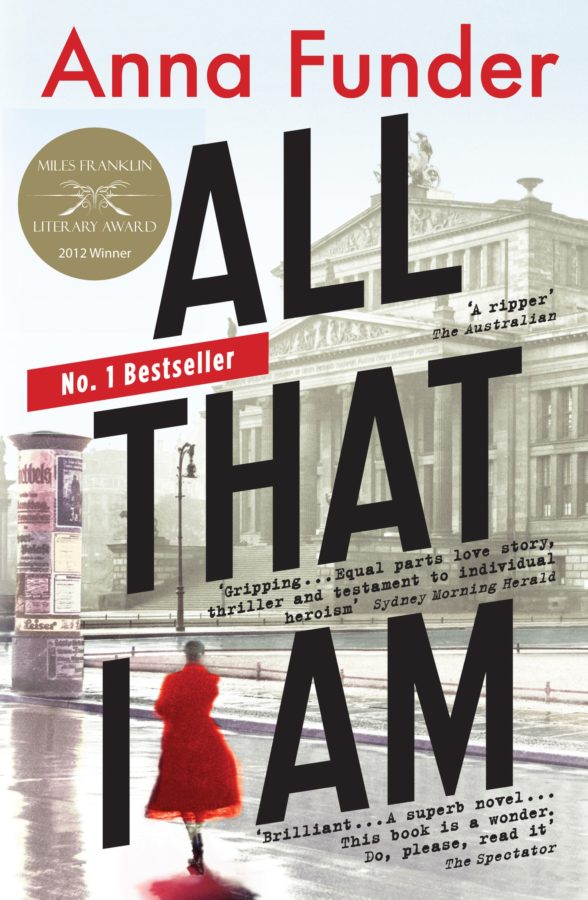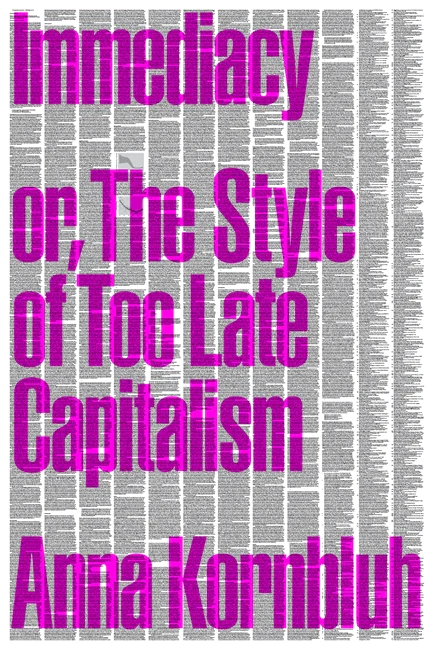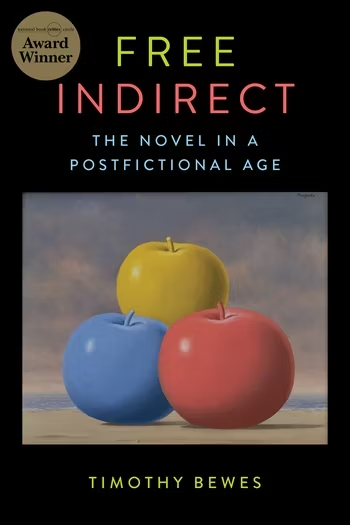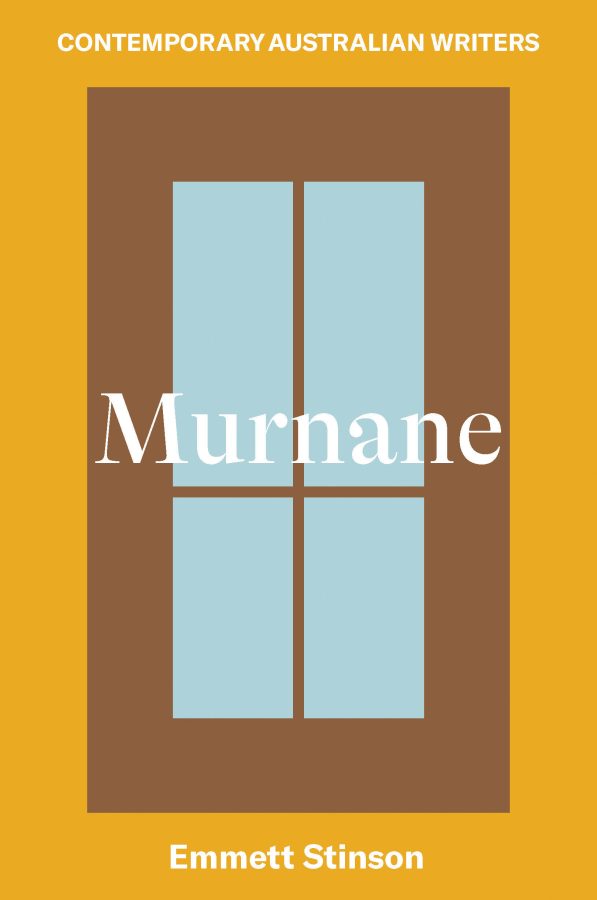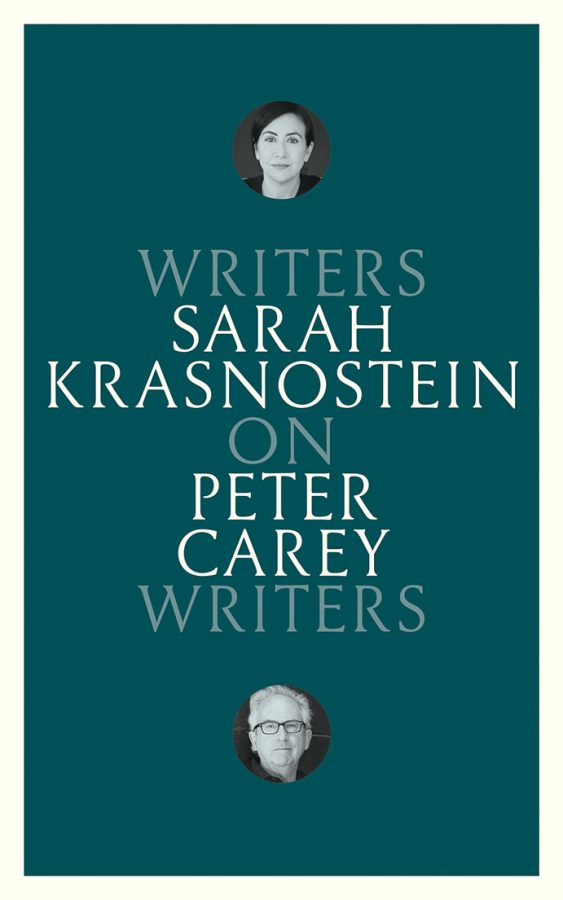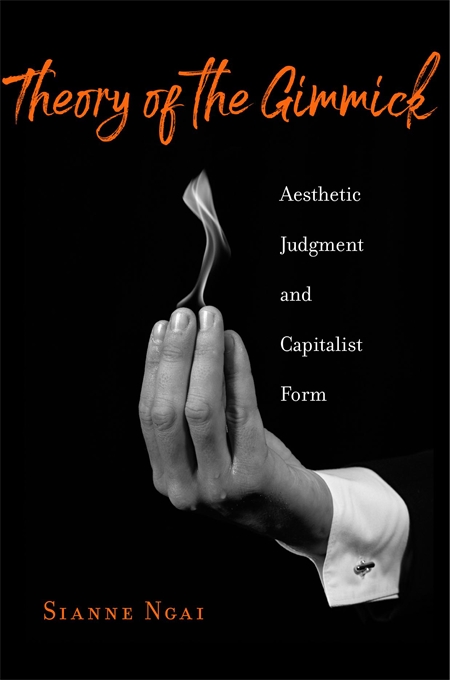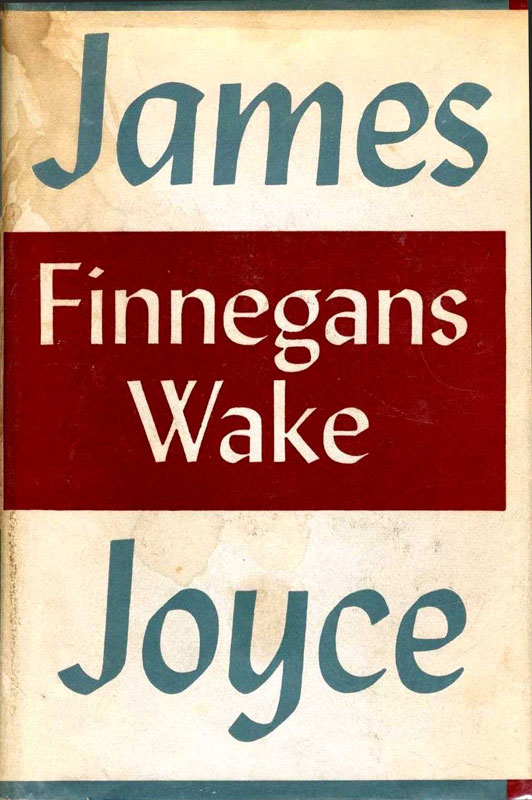I proclaim to all the inhabitants of the land that they cannot trust to what the periodicals say of new books. Instead of being able by reading the criticism to judge of the book, it is now necessary to read the book in order to judge the criticism.
– Putnam’s Monthly (April 1855)
The question of book reviewing has recently flared up, again. In a New York Times article last year, Dwight Garner made ‘A Critic’s Case for Critics Who Are Actually Critical’:
The sad truth about the book world is that it doesn’t need more yes-saying novelists and certainly no more yes-saying critics. We are drowning in them. What we need more of, now that newspaper book sections are shrinking and vanishing like glaciers, are excellent and authoritative and punishing critics – perceptive enough to single out the voices that matter for legitimate praise, abusive enough to remind us that not everyone gets, or deserves, a gold star.
Prompted by a Jacob Silverman piece in Slate on the ‘epidemic of niceness’ that suffuses online literary communities, Garner wondered whether sparring sensibilities can any longer really ‘let fly’ at one another in the uncertain transition from print to digital media. Publicists and self-publicists seem to be appropriating the reviewing agenda.
On cue, William Giraldi let fly at Alix Ohlin in the New York Times, provoking a range of counter-positions to the pessimism of Silverman and Garner. In anticipation of the controversy, Jane Hu had pointed out in June that the polemic against insipid reviewing was something of a genre in its own right and sketched its long history. The classic lament in US criticism is Elizabeth Hardwick’s 1959 essay ‘The Decline of Book Reviewing’, in which she complained that ‘sweet, bland commendations fall everywhere upon the scene’. She would answer her own call by becoming a founding editor of the New York Review of Books four years later.
Of course, it would be foolish to isolate reviewing from the literary ecology of writing, publishing and reading – an environment in which reviewing is, inevitably, the least valued occupation. Gail Pool’s Faint Praise: The Plight of Book Reviewing in America (2007) is informative here. It details the structural pressures applied to book reviewing by a publishing industry it cannot hope to survey fully, parsimonious editors, and a reading public that tends strongly to the ambivalent. Pool points out that these pressures are constitutive of the phenomenon of mass print that gave rise to the book review. The myth of a Golden Age of criticism is something of a condition of reviewing’s possibility: there can never be enough reviewing, and it will always be steered largely by the commerce of print.
While a sense of ‘decline’ may be unavoidable, it is not the case that the conditions in which decline is perceived are constant. Another classic of the genre is Rebecca West’s ‘The Duty of Harsh Criticism’. Again, the complaint is of the ‘vice of amiability’, the ‘convention of pleasantness’, the ‘chorus of weak cheers’. West calls for a ‘new and abusive school of criticism’. Stupid critics must leave the library just as in ‘the middle ages we left the home if we were lepers’. West was writing in November 1914 and her call to arms is a satire on the call to war. She does not leave it to her readers to make the inference: ‘The mind can think of a hundred twisted traditions and ignorances that lie across the path of letters like a barbed wire entanglement and bar the mind from an important advance.’
The martial context compels West to give priority to criticism’s civic role, distinguishing her essay from most ‘decline’ polemics. The contrast shows how the ‘decline’ intervention is too often made by those established in a reviewing scene who are exasperated by niceness and shallowness more than they are by the broader implications of these faults. The call for critical abuse is not for its own sake, but for the cultivation of a moral disposition that does not tolerate the inessential. The capacity, that is, to seize upon mere ideology and cultivate true consciousness.
An impatience with the inessential is the conspicuous concern of a new Australian literary periodical, Kill Your Darlings. Its first issue in 2010 carried a robust ‘decline’ polemic by Gideon Haigh. The book pages of Australian magazines and newspapers, Haigh tells us, have not so much snared on barbed wire, as fallen into the ‘wasteland’ beyond. Reactive ‘fanging’ is no antidote to ‘lacklustre infomerciality’. He calls for critics with voices strong and true enough that readers are drawn to them, and revives tried and true rationales for criticism: providing context, deepening understanding, clarifying debate.
Like the best examples of the genre, Haigh’s glints with aphorisms, but it is also typically brief when it comes to articulating what is at stake. His piece informed a debate on Australian literary reviewing late in 2010, hosted by the Wheeler Centre in Melbourne. The participants were Haigh, Peter Craven, Kill Your Darlings editor Rebecca Starford, and Hilary McPhee. The conversation spilled into print and came to focus on the relative merits of traditional print and new online forums for criticism. Craven had spoken against literary blogs and Geordie Williamson, writing just before the Wheeler event, was also dismissive. Rebecca Starford and Daniel Wood pointed to new possibilities. The divide, however, did not correspond to each commentator’s sense of the health of reviewing. Craven and Wood were firmly in the ‘decline’ camp (Wood quipped that ‘Australian literary criticism has indeed declined in quality — but it has declined from a zenith of mediocrity into the depths of abject uselessness’); Stafford and Williamson looked, in different ways, to the positive.
With eyes open to the unavoidable commercial mediation of reviewing, Melbourne University publishing academic Emmett Stinson commented that the panellists had overlooked the real source of the tension. He does not so much see robustly critical reviews as the solution, as the need to break the predictable circuits of the book as commodity. More recently, however, roused by Silverman’s complaints in Slate, Stinson has issued his own ‘decline’ clarion: ‘Australian literature should be embattled, passionately fought over … Australian literature doesn’t need saving or preserving – what it needs are partisans, contrarians and heretics.’ The change in pitch would seem to be the result of an increasing awareness of the ‘invidious networks of backscratching and bootlicking’ of online literary communities: it turns out that strongly critical voices are necessary … now!
Australians soldiers are dying in the Afghanistan war, but no satire of disguised insurgents turning their guns on their military instructors will shock local critics into a new school of abuse. It seems that the renewed sense of decline is prompted by the transition from print to online. This appears to be expanding the massage circles of publishers, authors and reviewers, and shutting critical voices out.
The conversations just discussed were concerned with the relationship between writers and the publishing industry. Thin criticism turns reviewing into infomercial, allows established writers merely to churn out material, reinforces industry nepotism, and denies new authors the reception they need to flourish. The result: a watery literary field. The implication is that this state of affairs leads to a failure of criticism’s broader civic role, but the consequences have not been examined. I would like to consider the consequences of poor criticism in this broader context.
Let us make a case study. In 2012 the Miles Franklin award went to Anna Funder’s All That I Am. It is the author’s first novel, but her name had been established by the non-fiction hit Stasiland (2003). To have claimed a prize of such stature would suggest that the novel had weathered a robust critical reception. A failure of criticism would be a great disservice to the public, allowing material of uncertain quality to masquerade as significant work.
The narrative of All That I Am is elaborately layered, though not to the point of challenging comprehension. There are two first-person narrators, and each is temporally split. The dominant voice is Ruth Becker, a bourgeois German Jew exiled to England and later Australia by the National Socialists. Alive but not well in Bondi at the turn of the twenty-first century, she is prompted to reflect on her initial period of exile in 1933-34 when she receives a first edition of Ernst Toller’s autobiography with additional typed sheets from an archivist in New York. Toller, a figure taken from history, had been the lover of her cousin, Dora Fabian, another real historical figure. Ruth’s thoughts move between her infirm old age and the tumultuous experience of fascism’s rise seventy years earlier. In counterpoint, we have Toller, whose voice splits between reflections on his present in New York in 1939 and the same initial period of exile. The sections that discuss the exile and the events leading up to it are spoken aloud to his amanuensis and lover Clara. The distinction between speech/script and the present narrative consciousness is indicated by section breaks.
So we have Ruth in 2001 reading Toller in 1939 reflecting on Dora and the 1933 period, which prompts Ruth’s own narrative of exile. We also read Toller’s dictation from 1939 and his unarticulated thoughts on life in exile leading up to his suicide in the Mayflower Hotel. The narrative alternates between the two voices 37 times in 361 pages – on average, once every ten pages or so – and the sections themselves alternate frequently between the present (i.e. 2001/1939) and the remembered past. Together, the voices tell the story of Dora Fabian, the unambiguous heroine of the piece.
Multiple first-person perspective has been popular in recent fiction writing, and fluid multi-temporal narration is a long-established technique. Funder is drawing on tried novelistic techniques. They are, nevertheless, conspicuous and brave for a first-time novelist who has a reputation for non-fiction. The organisation places constant pressure on Funder to distinguish between the overlapping consciousnesses and temporalities.
Having gone to such lengths to establish the interplay of first-person perspectives, Funder nevertheless slips in lengthy passages of orthodox third-person narration. In one scene, Dora goes to Toller’s apartment to pick up some of his papers ahead of their inevitable confiscation. It is a moment of high tension. Dora’s mouth is dry. She’s hyper-aware of the floor ‘creaking and groaning’. She experiences a moment of terror when the telephone rings. For five pages, we have access to Dora’s most intimate associations as she responds to the small details of her lover’s apartment. Under the fist of totalitarianism, a world is quickly vanishing. Funder then slyly reverts to the first-person when Dora rings Ruth to ask her to come pick her up. She wants to have her art and eat it: to narrate suspenseful scenes with the unencumbered range of an omniscient consciousness, but to retain the lyricism of the individual’s partial perspective.
Perhaps this adverse judgement is misguided, wrongly presuming that the narrative needs rigidly to abide by its own parameters. But such an allowance cannot account for the way in which the two ‘I’s are often indistinguishable. Toller is supposed to epitomise the paradox of the writer of social conscience: valiant, brave, yet hopelessly egocentric. Ruth, on the other hand, is meant to have humility, to be an observant and held-back personality. She is a photographer. And yet both think the same brand of ponderous aphorism:
‘It is not possible to understand Hitler,’ I say, ‘unless you understand his hatred.’
I wonder, now, about interrogation chambers: why do they think bright lights brings the truth out of people? They should try the seduction of shadows, where you cannot watch your words hit their target.
As it turned out, we underestimated the liberation from selfhood the Nazis offered, the lure of mindless belonging and purpose.
For some reason it is harder to fear what you can see in front of you – boys in uniform led by a rabid brilliantine vendor. Fear thrives better on the unseen, because we do not want to think we are afraid of something we also find laughable.
Memory has its own ideas; it snatches elements of story from whenever, tries to put them together. It comes back at you from all angles, with all that you later knew, and it gives you the news.
A stupid question, blurted in one of those moments of shock when one becomes iterative, grasping with a dumb word that which one does not wish to be true.
We risked our lives to help our fellows … imagine. They did not imagine it. … It is not that people lack an imagination. It is that they stop themselves using it.
Which is which? One might expect that this is all Toller, the great writer and orator. For the record, it is Toller, Toller, Ruth, Ruth, Ruth, Toller, Ruth. They may be said to constitute the one shifting narrator: Ruthtoller. Reflecting on drug addiction, Ruth thinks it is ‘a quest for exactly this: the constant present tense’. Reflecting on the difficulty of retrospectively capturing Dora’s character, Toller thinks: ‘I need the present tense like magic.’ Ruth comments on one of Dora’s lovers, Wolfram Wolf: ‘perhaps this dramatic end to his one foray into politics had sent him scurrying back to the university, under the grey bedclothes theory.’ Toller: ‘he was the worst kind of armchair revolutionary: supercilious and cautious to the point of cowardice; international and theoretical to the point of irrelevance.’ The likeness of the consciousnesses aside, this seems an unlikely verdict from a generation of the German left that endlessly discussed the problem of integrating praxis and theory. (An example of a convincing first-person portrait of the left-artist emigré can be found in John Berger’s 1958 debut A Painter of Our Time.) The general effect is of a writer trying too hard to write meaningful things, and using her characters in a slipshod manner in order to do so.
The lack of discipline is nakedly exposed at the novel’s close. Toller commits suicide, and then Ruth dies in her chair at home. With the two first-person consciousnesses extinguished, the narrative shifts to a clipped, descriptive third-person as though to jar us from the intimacy of the ‘I’. The effect is flat because there has been no restraint which would earn it. This failed last roll of the narratorial dice confirmed my view that the novel is quite poor. Poor enough to prompt even less charitable thoughts, particularly on the ethics of writing a historical novel on the Nazi catastrophe. Funder’s narrative strategy would suggest that she is trying to bring us to understand that history in a particular light. As it turns out, we are provided with historical reflections of a predictable liberal hue scattered through a novel that creates tension and release to industry-standard rhythms (it even climaxes in the courtroom). One starts to wonder whether the historical scene has been used to target readers’ emotional responses to historical catastrophe, rather than to bring them to a new understanding of it. Given the size of the publishing industry around the Nazis, it might be that this is not just a poor novel but one driven in part by commercial calculation, and so in quite bad taste.
I built myself up to a pitch as I read All That I Am. I recall being somewhat impressed by the surety of the prose in the early sections. Some passages of 2001 Ruth made me smile. And yet, as a work of narrative craft, All That I Am goes awry, and so that surety came to seem like unwarranted confidence. While I think that everything I have just written is true, there are reasons for why I may have been reading in bad faith. As it happens, the Ruth Becker character is inspired by an actual Jewish refugee to Australia whom Funder befriended, and whose biography almost exactly matches my grandmother’s. Like Ruth, she was forced from her university studies for being with the socialists and left for London in the first weeks of Hitler’s reign. She remained there until 1940, when she secured visas for herself and her parents to South Australia. It would be easy for me wrongly to expect that Funder’s Ruth replicate my grandmother’s particular characteristics. Not all 90-something assimilationist German Jewish middle-class atheist socialist combative-yet-introverted refugees to Australia are necessarily the same, after all.
Upon hearing my verdict that the novel is an airport Nazi espionage thriller dressed up as Literature, a colleague suspected that my views were only an indication of my snobbery – ‘when’s the last time you read an airport novel?’ he asked. Indeed. In such circumstances, one turns to criticism. To measure one’s own response against the critical community is not a matter merely of interest; it provides the opportunity to develop one’s taste, sensitivity and intellect – Haigh’s providing context, deepening understanding and clarifying debate. And it is galling to have self-gratifying polemic outflanked by cooler, more astute judgements.
I read all the reviews I could find. I certainly didn’t feel outflanked. It transpires that the winner of the nation’s premier literary prize had not really had a critical reception in this country. Hardwick’s chastisement – ‘A book is born in a puddle of treacle’ – came to mind when I read Mark Thomas in the Canberra Times:
Funder’s treasure map was the few, small “fossil fragments” left from her protagonists’ lives. Her treasure-hunting was to make characters live, dredging her own imagination as well as those “tiny, tiny shards”, which she describes as the hardware of history. As for the software, that is her capacity to graft an emotional narrative on to the historical one, to create a passionate and intimate story, to suck in a reader as the characters are sucked down into the Nazi vortex.
When he continues ‘Her grasp of both historical hardware and literary, creative, personal, intuitive software seems to be truly remarkable,’ one begins to wonder if shards may have disrupted the hardware of Thomas’s judgement as he was sucked into the novel’s vortex. Expensive treasure-hunting software might be needed to dredge him up, in any case. This piece belongs to the dubious genre of the interview-review. Framing comments made directly by the author to the reviewer are quoted in one paragraph; rivers of treacle flow in the next.
Rather than a critical consideration of the style of the novel in relation to its organisation, some critics seek to emulate Funder in praising her. Geordie Williamson, in the Australian, absorbs her penchant for pithy grammatical analogies: ‘She wants to climb into the skin of her characters and inhabit them: living verbs of fiction rather than dead nouns of historical fact.’ On the Conversation site, where we are promised ‘academic reviews of the five novels shortlisted for Australia’s biggest literary prize’, Bronwyn Lea’s assessment is phrased in the vein of Ruthtoller’s historical moralising: ‘All That I Am is a novel that questions the ubiquity of the human conscience, yet it insists on its cultivation. We ignore our conscience – or allow its distortion – at our peril. History shows that the consequences can be mighty.’
Praise isn’t wrong just because I happen not to like the book. The issue is that none of the critics work to demonstrate why exactly the novel deserves it. I had thought the following comment of Haigh’s exaggerated: ‘Far easier to summarise the contents, recapitulate the blurb, describe the author’s reputation, or examine the author’s politics in a thinly veiled op-ed.’ But this more or less characterises the novel’s reviews in the Adelaide Review, the Sydney Morning Herald and the Sunday Age. Writing for Crikey, Bethanie Blanchard posted a lively but hardly concerted engagement (‘Hans is, for me, one of the most interesting characters in the novel’).
Perhaps understandably, the bulk of the reviews focus on Funder’s decision to integrate real historical figures and events into fictional narrative. S.A. Jones, a historian, raises some interesting questions in Kill Your Darlings, though it is doubtful that most readers would be as concerned as she is with distinguishing fact from invention. Writing in the UK paper the Financial Times, the historian Simon Schama makes the more convincing claim that such confusions tell at the aesthetic level. Schama evidently does not have the literary critical skills to articulate how exactly this confusion stains the aesthetic (‘The ball and chain of history can hobble the gait of the imagination’ sounds uncomfortably like a Ruthtollerism), but at least a judgement of its aesthetic merits is his aim.
The more critical Australian reviews were by James Ley in the Age and David Marr in the Monthly. Ley spends a great part of his review commending the virtues of the novel, though without particular enthusiasm. Right at the end he comments:
On a technical level, the novel might have made more ambitious use of the overlapping perspectives of its two narrators and one occasionally feels the lack of a more idiomatic sense of language (the voices of Toller and Becker are a bit samey), but All That I Am is an unusually well written and intelligent first novel, a story that justifies its own telling.
Samey? Quite! I would have thought this deserves more than an aside. It is as if we do not read 361 pages of Ruthtoller under the pretence that they are two separate consciousnesses, but Ruthtoller for the sake of a more-than-decent historical espionage thriller (to his credit, Ley identifies the novel’s predominant generic type).
Outwardly, Marr’s sounds like a positive review. He does, however, spend a good three paragraphs critically addressing the novel’s narrative approach. He believes that Funder is a talented storyteller, but that the conceit of two first-person narrators detracts from this. He ends with something of a rebuke, using the novel’s words against itself, though to somewhat ambivalent effect: ‘The book is a little like Ruth’s mind … “My mind is a skittish thing,” Ruth says. “It will not open if asked too directly.”’
Clever, but it allows Marr to avoid frankly considering the merits of the novel as a work of craft. The prose is excellent but the narrative flawed; its author is talented but lacks judgement – do these contradictions not call for more reflective effort?
Given her profile, I would guess that many of the reviewers have met Funder in one capacity or another: at interviews or, perhaps, dinner parties. There aren’t that many writers and critics in Australia, and we cannot expect that reviewers will not encounter their subjects, particularly when so many are themselves authors. Yet we should not accept that criticism should necessarily fail. On this occasion, a weak reception has given the novel the aura of profundity that it has not earned. Thousands of copies of the book are being shifted, and the glow of award winner will dispose readers to weigh their experience of the novel with their most serious consideration. When the critical elite has been so firm in pronouncing on the novel’s merits, readers will tend to approach it with the intent of forming what Kant calls a ‘subjectively universal’ judgement of taste: a judgement so firm in its conviction that it appeals for universal validity. It is not just that I, the regular punter, happen to find this novel beautiful, but that any sensitive and competent reader likewise ought to. Critical acclaim compels us to entertain the idea that this novel’s distinction should be regarded universally to be true.
Such an expectation seems bathetic against ‘sucked down into the Nazi vortex’. In this instance, I suspect some would defend Funder’s novel by making an appeal to a tautology of public and critical opinion. The critics are right because the public are buying the book, the public are right because the critics are recommending it.
What is to be done? The decline polemic is supposed to end with a witty but rousing call for unyieldingly rigorous, critical criticism. In Faint Praise, Gaile Poole suggests that the decline polemic might just be another part of the game:
The venom. The scorn. That asymptotic decline! The charges are so excessive, so extravagant, they rest so shakily on the myth of a Golden Age of reviewing that clearly never existed that itÕs tempting to dismiss them as typical publishing fare.
Anyway, another kick up the bum seems pointless when the problem appears to be structural, particularly at the juncture of print’s decline and the self-promotion attending so much activity online.
The other solution has been to establish a new forum for the kind of criticism that the critical critic would like to see. Hardwick’s venom helped to beget the New York Review of Books, which would in turn beget the London Review of Books during a journalists’ strike. Perhaps. But these periodicals draw on an international cosmopolitan elite fanning out from those two most cosmopolitan of cities, both with a plethora of super-elite universities nearby. Such models seem an unlikely panacea for the Australian field.
I would like to make a different suggestion, and one that does not rely on a spontaneous eruption of critical rigour, nor on creating a Golden Forum. And the model is a local one: the ABC’s Media Watch. It is a wonderful mechanism, not just because it has an unyielding sense of journalistic standards and ethics, and pursues corruption to its inevitable source in journalism’s ever-intensifying commodity character. One just as often tunes in to find out what has been in the news, because it can be more informative, and certainly cathartic, to see somebody filtering the sewage than to plunge in oneself. (Jon Stewart’s The Daily Show plays a somewhat similar role for the 24-hour news cycle in the United States.) What is needed, then, is ‘Critic Watch’. The tasks and ethics of watching criticism would be somewhat different, though. Certainly the ‘invidious backscratching’ would need to be exposed – it seems there is a lot of it around. Its essential function, however, would be to interrogate judgements of taste and the way such conspicuous acts of discrimination shape the literary field. ‘Critic Watch’ would read criticism against its critical object, and consider the plausibility of the judgements being made. It would be something of a throwback to the eighteenth century literary salon and the practice of aesthetic disputation. Not only would critics need to defend their professional integrity, they would need to defend their taste.
Read ‘The Brain Feign’ correspondence.
Challenges? Queries? Suggestions?
Email: criticwatch@sydneyreviewofbooks.com
References
John Bailey, ‘All That I Am’, The Sydney Morning Herald, (25 September 2011).
John Berger, A Painter of Our Time, (Secker & Warburg, 1958).
Bethanie Blanchard, ‘To whittle down all that I am and give it a value: Anna Funder and the Miles Franklin decision’, Liticism, (21 June 2012).
Peter Craven, ‘Successful merging of critic with fan’, The Age, (10 September 2010).
Stephanie Dowrick, ‘In memory of the truth’, The Sydney Morning Herald, (29 October 2011).
Dwight Garner, ‘A Critic’s Case for Critics Who Are Actually Critical’, The New York Times, (15 August 2012).
William Giraldi, ‘Here if You Need Me’, The New York Times, (17 August 2012).
Gideon Haigh, ‘Feeding the Hand that Bites: The Demise of Australian Literary Reviewing’, Kill Your Darlings, Issue one, (March 2010).
Elizabeth Hardwick, ‘The Decline of Book Reviewing’, Harper’s Magazine, (October 1959).
Jane Hu, ‘A Short History Of Book Reviewing’s Long Decline’, The Awl, (15 June 2012).
S.A. Jones, ‘History in the service of fiction: Anna Funder’s All That I Am’, Kill Your Darlings, (16 November 2011).
Bronwyn Lea, ‘Powers we pretend to understand: Anna Funder’s All That I Am’, The Conversation, (20 June 2012).
James Ley, ‘Toxic politics and the path to despair’, The Age, (27 August 2011).
David Marr, ‘The Magic of Exile: Anna Funder’s All That I Am’, The Monthly, (September 2011).
Gail Pool, Faint Praise: The Plight of Book Reviewing in America, (University of Missouri Press, 2007).
Simon Schama, ‘All That I Am’, Financial Times, (9 September 2011).
Jacob Silverman, ‘Against Enthusiasm’, Slate, (4 August 2012).
David Sornig, ‘All That I Am’, The Adelaide Review, (October 2011).
Emmett Stinson, ‘Literary Links: Reviewing the Reviewers’, Known Unknowns, (10 September 2010).
Emmett Stinson, ‘Critical Danger: Book Reviewing, Prizes, and Australia’s Literary Consensus-Culture’, The Wheeler Centre, (28 August 2012).
Mark Thomas, ‘None but the brave’, The Canberra Times, (3 September 2011).
Rebecca West, ‘The Duty of Harsh Criticism’, The New Republic, (7 November 1914).
Geordie Williamson, ‘Bugger the bloggers: old-world critics still count’, The Australian, (1 September 2010).
Geordie Williamson, ‘Anna Funder plunders the imagination as an act of compassion’, The Australian, (27 August 2011).
Ross Wilson, Subjective Universality in Kant’s Aesthetics, (Peter Lang, 2007).
Daniel Wood, ‘Critical Failure, Indeed’, Infinite Patience, (8 September 2010).
